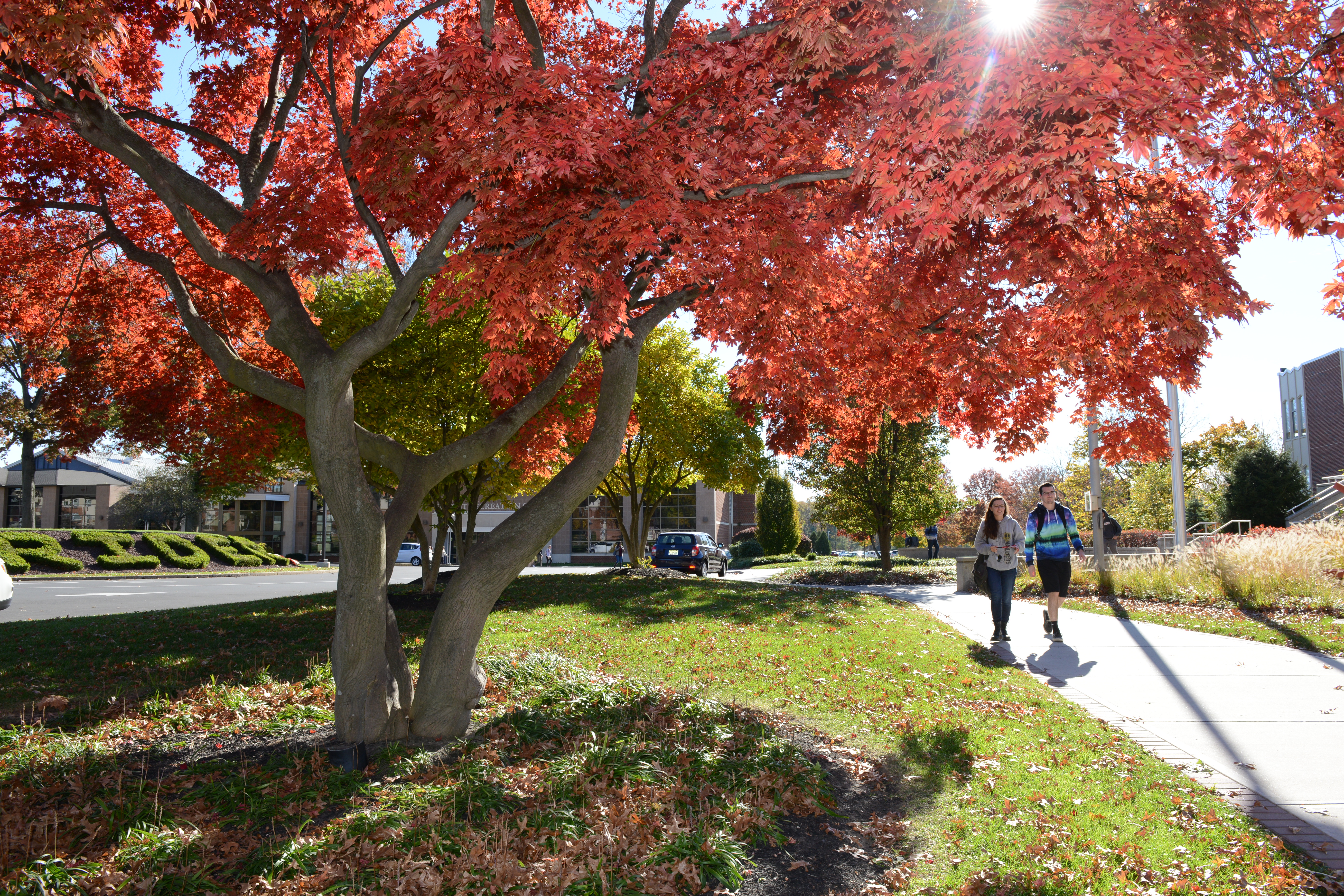Friday, Nov 2, 2018
University’s sustainability efforts recognized as being among top in country
by Megan Lupo '19
It’s not easy being green.
Or is it?
Of the more than 600 colleges examined during the 2017-18 academic year by the Princeton Review, Rider University was selected as one of the 399 most environmentally responsible colleges in the nation.
This is the ninth straight year Rider has been included in the annual edition of the Princeton Review’s "green guide," which is based on data from the company's 2017-18 survey of hundreds of four-year colleges concerning the schools' commitments to the environment and sustainability.
The Green Rating was scored on a scale from 60 to 99. Those colleges with a score of 80 or higher were entered into the list. Rider was rated 93 out of 99.
“The fact that we as a university continue to support sustainability as a priority is very important,” says the University’s Sustainability Manager Melissa Greenberg. “As competition grows each year, Rider’s ability to maintain its ranking with the Princeton Review is proof that our efforts are making a genuine difference.”
Greenberg has been involved with every sustainability initiative at Rider since she began her job in 2008, including the installation of 740kW solar array in partnership with PSE&G in 2011, recycling more than 25,000 health and beauty products in coordination with TerraCycle since 2016, and establishing five electric vehicle charging stations through a partnership with PSE&G and grant from New Jersey Department of Environmental Protection.
Rider continues to make progress toward its goal of becoming carbon neutral by 2050. More than 65% of Rider’s energy use is currently offset by a renewable source — wind energy. The University's on-campus trigeneration energy plant also reduces the amount of electricity Rider must purchase from the grid. Opened in 2014, the plant uses natural gas to generate electricity as well as steam and chilled water to the academic quad, reducing greenhouse gas and sulfur emissions. A future goal Greenberg has set her eyes on is the installation of solar canopies over campus parking lots and adding more EV chargers.
Rider’s Office of Sustainability also hosts events to inform and educate the University community about environmental issues, such as its annual Green Film Series, National Campus Sustainability Day and other on-campus events.
The endeavor toward a more sustainable campus would not be possible without the support of the University community, Greenberg says.
“I’m so grateful to contribute to a university that values the importance of sustainability — not just for the outcomes of our initiatives and projects but for the educational piece, as well,” Greenberg says. “It’s really important to expose today’s college students to these issues because it is going to matter to them and their future.”

